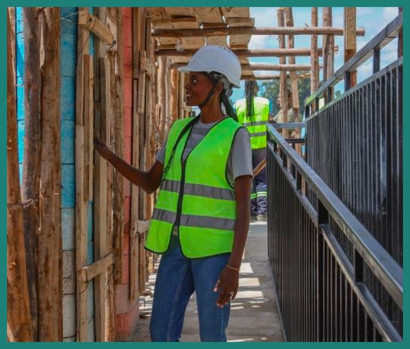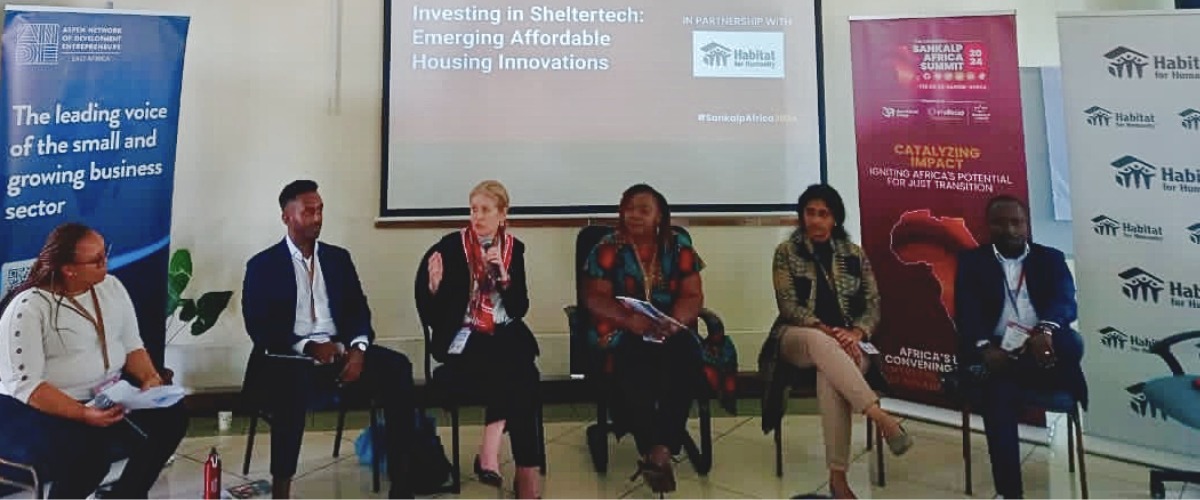There is an urgent need and significant opportunity to champion low-carbon solutions in material development and construction, particularly for climate-resilient housing for the economically disadvantaged.
“The built environment comprises 37% of carbon emissions. Decarbonizibg building stock is critical not only in the Global North but also across the Global South,” said ANDE’s Executive Director, Richenda Van Leeuwen, during a lively discussion at the Sankalp Africa 2024 forum, in a panel with Habitat for Humanity International.
This represents a challenge and opportunity for developed and developing nations planning to invest in the burgeoning field of shelter tech, which has a key role in this context.
 The sheltertech sector sits at the intersection of affordable housing innovation and sustainable development.
The sheltertech sector sits at the intersection of affordable housing innovation and sustainable development.
The opening day session at Sankalp brought together leading figures from the Nairobi Securities Exchange, Opes-Lcef, the Kenya Green Building Society, and Kubik, Inc., among others. They explored avenues for investment and strengthening the Sheltertech ecosystem.
While Habitat for Humanity’s Sheltertech initiative seeks to stimulate investment in scalable and affordable housing solutions, ANDE complements this vision by providing access to capital and crucial incubation resources, nurturing the growth trajectory of innovative Sheltertech entrepreneurs.
Participants stressed the strategic importance for Sheltertech startups to embed impact considerations from the outset. This allows them to navigate investment landscapes and regulatory hurdles more effectively. Collaboration with governments, engagement in policymaking, and pursuit of concessional funding were identified as crucial strategies to unlock the sector’s potential.
The session also called for a unified voice among Sheltertech entities, encouraging them to seek active participation in network and association memberships like ANDE itself. This will enable them to advocate for the collective support and investment necessary for the sector’s expansion. The need for enhanced capacity building and technical expertise within the industry was also acknowledged, considering the nascent adoption of these emerging housing solutions.
This Sankalp Africa 2024 gathering signifies a significant step forward. It has rallied stakeholders around the vital cause of sustainable and affordable housing, paving the way for innovation, investment, and impactful collaboration.

